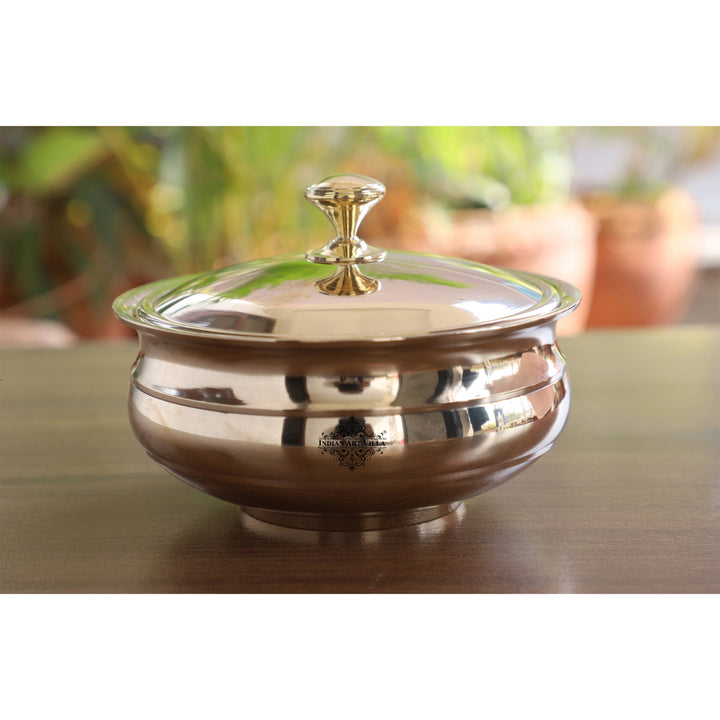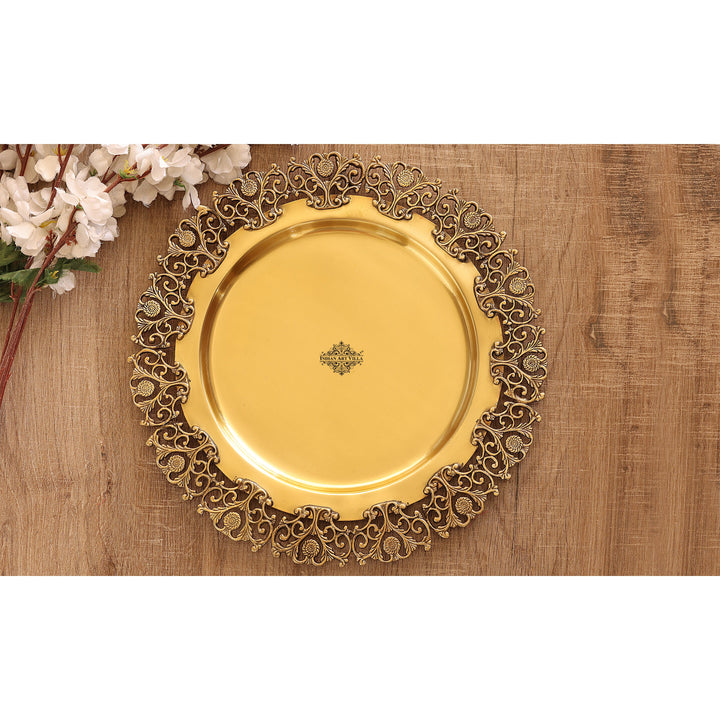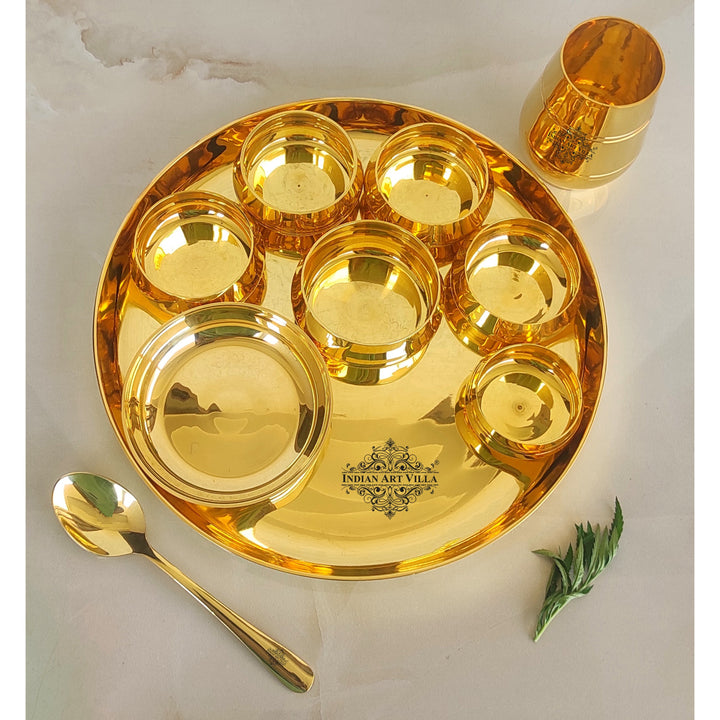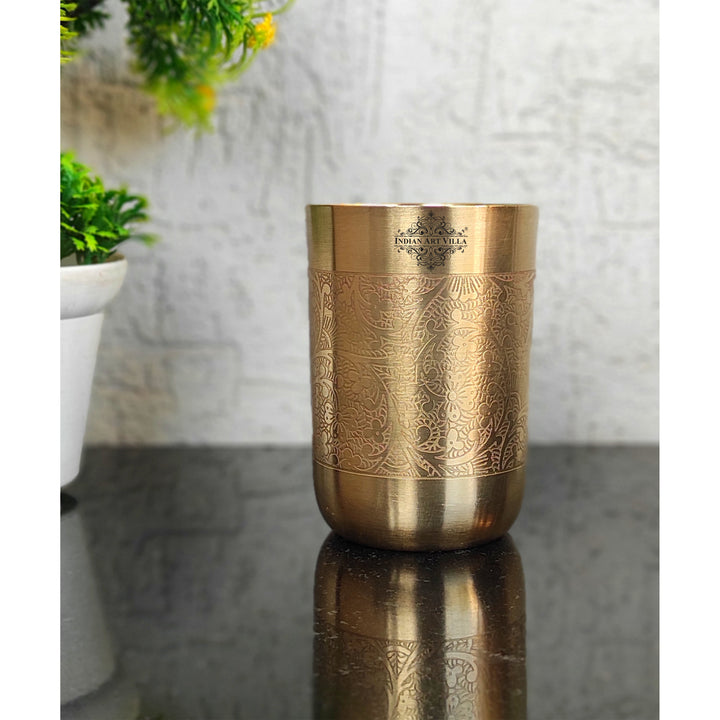How Brass Utensils Are Different From Other Utensils?
Several research studies in the last few years have pointed out as to how people are increasingly disenchanted with utensils made of Teflon coat, plastic, etc. As a result, they are going back to the traditional methods of cooking involving the usage of brass utensils.
Made up of a combination of 70 percent copper and 30 percent zinc, Brass Utensils are heat conducting, non-magnetic, and long lasting vessels.
How Are Brass Utensils Different?
There are many types of utensils. Among the most prominent ones are:
Stainless Steel
Along with brass utensils, stainless steel utensils are among the most extensively used around the world.
- They Allow wide varieties of food to be cooked in them.
- They Are durable and long lasting.
- They Are easy to maintain.
However, when compared to brass utensils, stainless steel utensils can retain only 60 to 70 percent of the nutrient content of the food.
Overall, they remain a good choice if you’re looking for utensils that allow and can handle a wide array of kitchen works.
Cast Iron
Made up of sturdy metal, cast iron utensils offer many quality health benefits and are long-lasting. When food is cooked in them, small percentage of iron from the utensils can merge into the food. The percentage of iron is considered to be healthy for human bodies. At the same time, excess of iron in the food can cause health issues like thalassemia, etc.
Thankfully, modern-day cast iron utensils come with a safe coating. This helps to reduce leeching of excess iron.
Bronze Utensils
Bronze utensils retain 97 percent of nutrients when food is cooked in them. In this regard, they are comparatively better than brass utensils. However, bronze utensils that come with nickel or tin coating can be harmful for health and can cause health issues.
Aluminum Utensils
Aluminum utensils are durable, lightweight, and strong. The only hitch is when food is cooked in aluminum utensils, aluminum from the utensils leeches easily in the food. This can trigger serious health problems like constipation, liver disorders, paralysis, and even brain disorders.
Non-Stick Utensils
Usually coated with Teflon that contains materials like cadmium and mercury, non-stick utensils are generally regarded as unsuitable for cooking. Their make-up components can cause health issues like cancer, nerve disorders, kidney and liver diseases, heart diseases, etc. Even after the removal of PFOA, a dangerous chemical that was earlier used to manufacture them, there still remains some components like PFAS, etc, that continues to remain dangerous to health.
Brass Utensil
When compared to other categories of utensils, Brass Utensils
- Are extremely durable and can last for a long time provided they are maintained properly. This is made possible by a procedure called Kalai or Kalahi which involves the coating of tin on the article after making them. This helps to preserve them from oxidization and extend their life-span. On the other hand, utensils like stainless steel, copper, non-stick, etc, with continual vigorous and rigorous use lose their utility value as a cookware. Extreme use increases their top layer which in turn releases harmful toxins when food cooked in them comes in contact with heat. This spoils the food that is cooked.
-
Are eco-friendly. Components that make up brass utensils come from nature. When their shelf-life comes to an end, they can be disposed off comfortably without causing damage to the environment. In many cases, they are often recycled and used back in the manufacturing process. On the other hand, most other utensils made with artificial chemical-based processes are hard to dispose of. Like for instance, non-stick spatula which takes between 50 to 500 years to get decomposed.
- Are excellent for storing food in healthy condition for a long time. Their anti-bacterial properties prevent the food stored in the utensils from getting spoiled. On the other hand, other utensils tend to produce harmful substances which can harm the food when they are stored in them for a long time.
- Require minimal cleaning agents and effort to clean them up after cooking and later maintaining them. This aspect makes them beneficial for cooking Indian cuisine items with a long cooking duration, and ensuring the food while being cooked does not become bitter. On the other hand, other utensils need to be thoroughly washed, cleaned, and wiped after every cooking and usage session. Else they can cause oxidation.
- Are reasonable in their pricing range. This makes them an affordable choice to buy. On the other hand, other utensils like cast iron, stainless steel, etc, are expensive. Besides they are manufactured by only a few brands.
-
Are stylish and attractive which adds to the glamour of any settings where they are placed or used. Modern brass utensils come in new exotic designs which give them a distinct edge over other utensils.
The presence of copper as a part of its make-up helps brass utensils to
- Add a distinctive flavor and taste to the food. When food is cooked in them, natural oil synergizes with other ingredients in the utensil.
- Boost collagen in human bodies when food is eaten after being cooked in them. Thus, copper-rich food plays a key role in the body stay anti-ageing.
- Preserve and maintain the consistency of herbs and pickles.
- Destroy only 7 percent of the nutrients, when food is cooked in them.
- Improve immune system by ensuring more copper to the body system, when food is cooked in them or water is drank from them. Lack of copper in the body can otherwise reduce the body’s immunity and cause bones and skin issues.
- Prevent abdominal infections.
- Cure respiratory diseases like asthma and cough.
Similarly, the presence of zinc as a part of its make-up helps to purify blood of those who eat food cooked in them or drink water from them. Above all, brass utensils produce melanin which plays a critical role in improving the health of the hair and skin.
In addition to the above,
- Food particles when cooked in them break down easily, thanks to zinc, one of the components that make up the utensils. This facilitates better food digestion.
- Food when cooked in them and later eaten from them helps to eliminate or limit the existence of respiratory diseases in the body.
- Food when cooked in them and later served from them helps to balance the three doshas, as is called in Ayurveda, Kapha, Pitta, and Vata.
- Water when stored in a brass jug overnight becomes pure. Next day, when water from the brass jug is poured into a brass glass and drank prevents the occurrence of worm-related diseases. This is all possible due to brass’ anti-bacterial properties.
Precautions
- Refrain from cooking acidic or citric foods in brass utensils.
- Extra care should be taken to clean and wash brassware items. Else, the brass alloys convert into green when reacted with oxygen in the outdoor atmosphere.
Aside from the above, make sure that tin coating (kalai) should be within the brass utensils that are used to cook food or store water.
Popular Brass Cookware ItemsIn Indian kitchens, brassware items have been an integral part for centuries. The reason for their sustained popularity over the centuries is attributed to their ability to offer the perfect mix of aesthetic looks and cooking/health benefits.
Brass cookware items come in varied forms, from brass dinner set to brass glass, brass jug, brass pressure cooker, brass lunch box, etc.
Brass Dinner Set
A brass dinner set comprises of 1 thali/plate; 1 glass/tumbler; 2 vegetable bowls; 1 dessert bowl; and 1 spoon.
With its mere presence, a brass dinner set
- Stays durable and long lasting.
- Functions as the ethnic looking centerpiece of dining table and enlivens its look.
- Creates a unique dining experience when serving Indian dishes to family and friends.
- Acts as a perfect gift for loved ones for any occasion.
Brass Glass
In Ayurveda, brass vessels are mentioned as having an alkalizing effect on liquid that’s served in them. This helps to regulate thyroid gland functions; strengthen bones; improve immune system; reduce fatigue; heal constipation; support hair growth; and treat skin issues.
A brass glass is the perfect glass for drinking or serving water and serving any liquid. With its pretty embossed design, a brass glass
- Functions as a perfect lifestyle and utilitarian object that’s beautifully simple.
- Remains a perfect gift for all occasions from weddings to anniversaries, engagements, etc.
- Is ideal as a decoration object in hotels, parties, etc.
- Is easily recyclable even after damage.
Aside from brass dinner set and brass glass, other popular brass utensils include brass lunch box, brass serving spoon, brass water jug, brass cooker, etc.
Conclusion
Copper and zinc are considered holy and counted among the Panch Tattvas. Using pooja merchandise made of brassware which is composed of 70 percent copper and 30 percent zinc, for sacred worship to deities will help the worshipper to experience the best traditional worship experience and obtain auspicious blessings.
Read More:








.png?v=1679047885)
